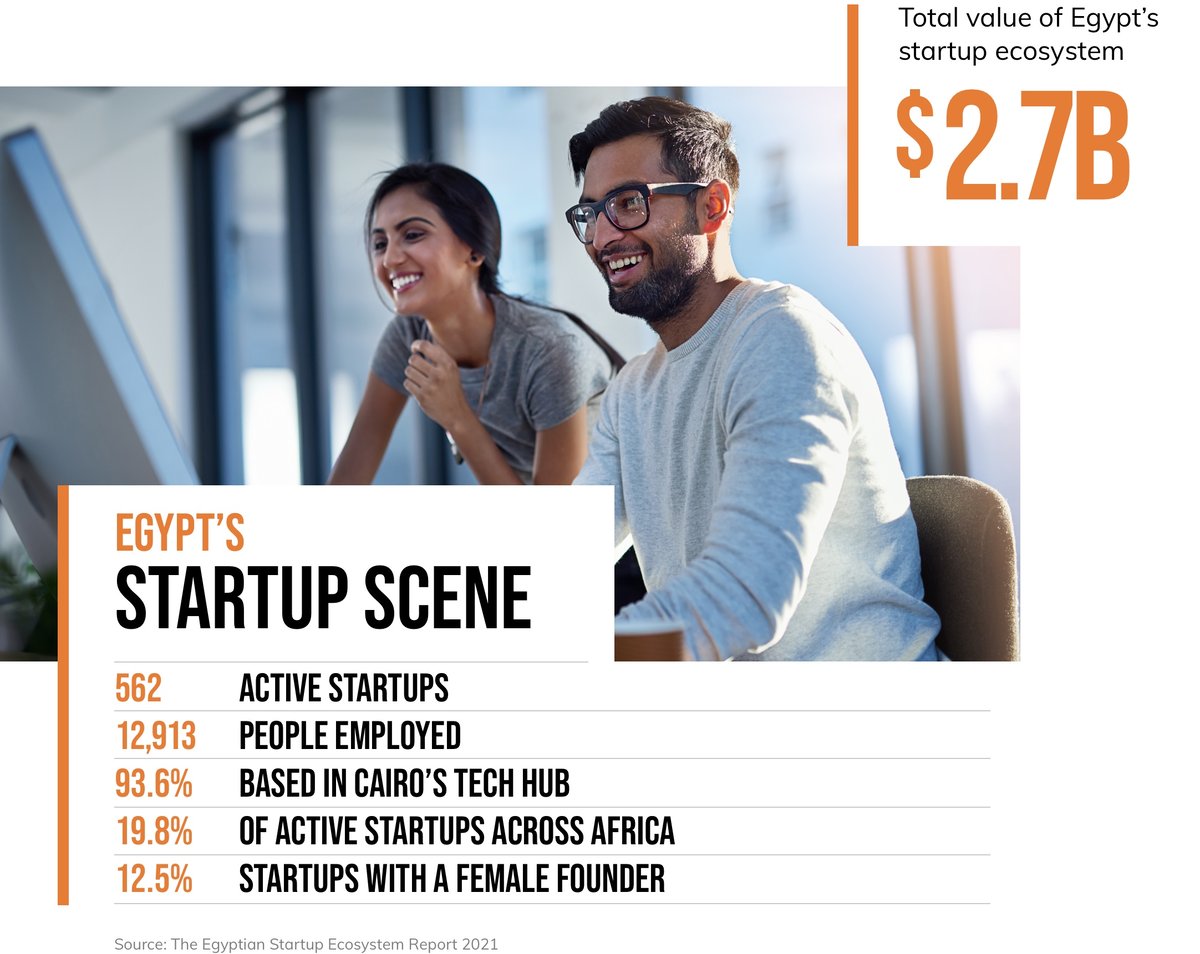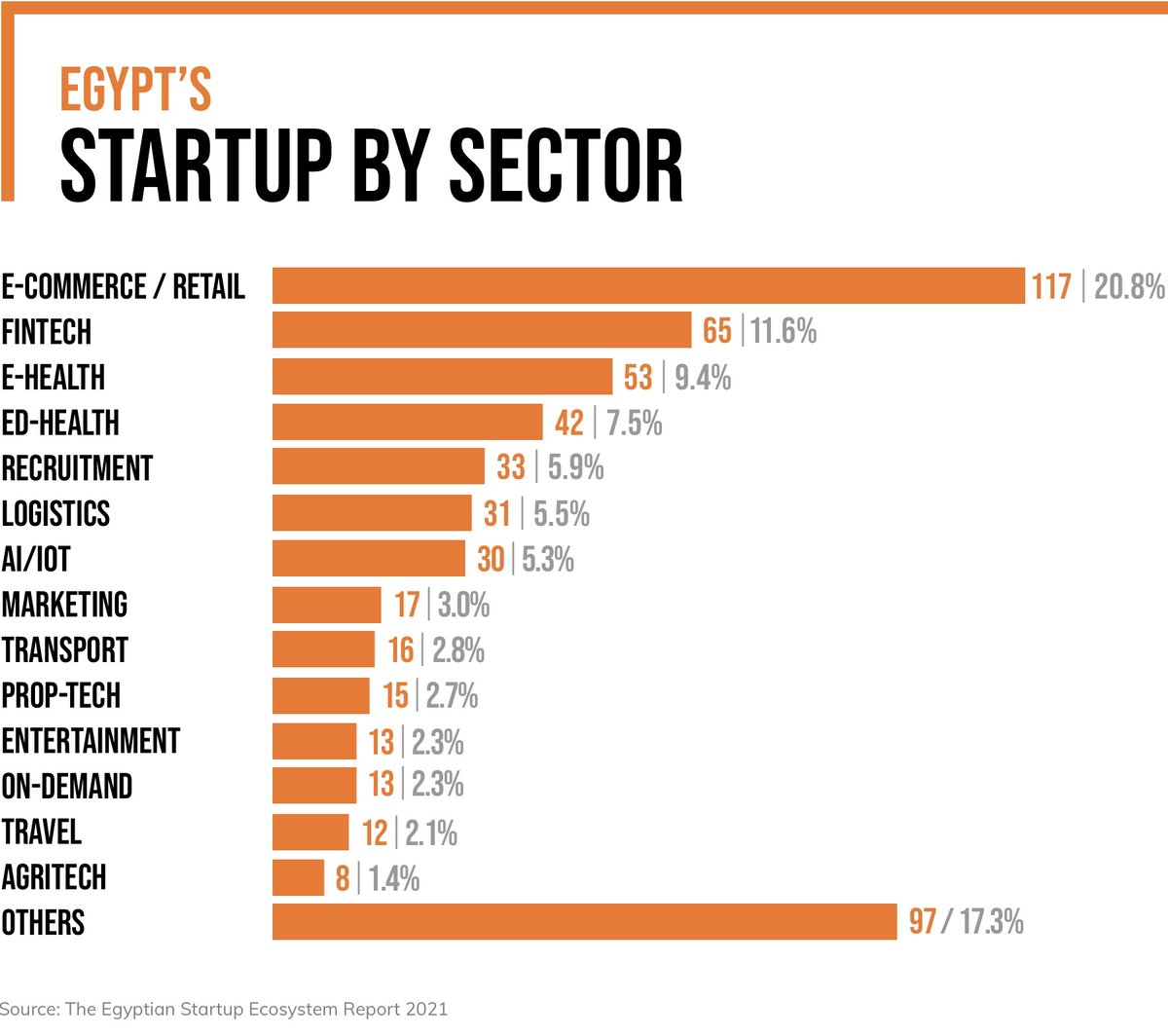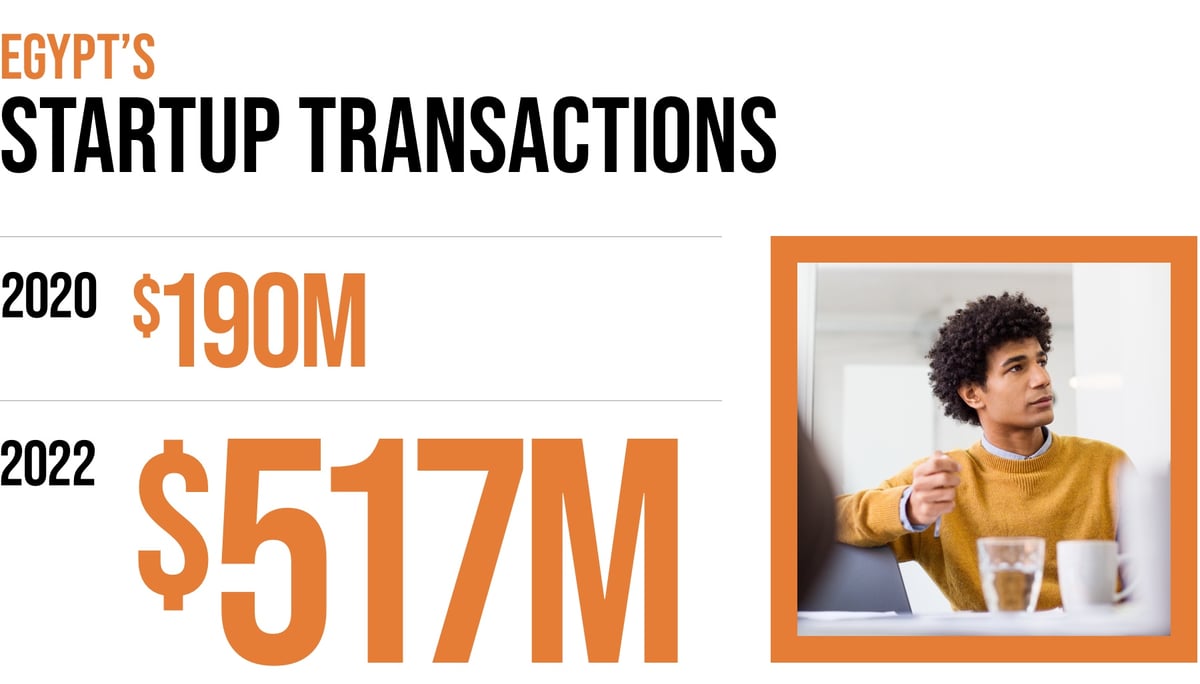Egypt’s Startups Are Powering the Region’s Digital Hub
Egypt’s startup scene is driving the digital transformation of Africa and the Middle East. Fueled by the entrepreneurial mindset of Egypt’s young population, innovative companies are finding digital solutions in finance, education, health care and beyond.
Egypt’s startup sector grew 176% in 2021 to register record-high venture capital funding of $491 million, according to startup data platform MAGNiTT. Across the Middle East and North Africa in 2021, Egypt accounted for 15% of transactions and 11% of deployed capital, with e-commerce and fintech the most active fields. Start-Up Genome, a data research company, ranks Egypt among the world’s top 10 emerging startup ecosystems, putting its total value at $2.7 billion.
The sector is set to gain “even greater momentum over the next five years” with the potential emergence of five Egyptian unicorns, predicts Ahmad Gomaa, Chairman and CEO of Egypt Ventures, a multi-stage investment vehicle created in 2017 by the Egyptian government to champion young, dynamic entrepreneurs.


Over half of Egypt’s 100 million population is under the age of 30. This demographic creates a vast pool of potential young technology talent, with 300,000 graduates emerging from Egyptian universities each year, helping Egypt to become the regional powerhouse in the digital economy. “You see students who are fresh out of university actively trying to have their own startup,” says Salma AlBarkouky, cofounder of Fatura, a B2B platform for retailers. “The startup scene in Egypt is booming and the potential is endless. It is shaping Egypt’s economy, big-time.”
Fatura is a B2B app that connects retailers to 600 suppliers, driving price transparency and competition within the Egyptian economy. It began with four university friends, but today has more than 300 employees serving 30,000 clients, and plans an initial public offering (IPO) in 2025. Fatura aims to grow “across different sectors, across different industries, across different verticals,” says AlBarkouky. “The mission is to become the new norm of B2B transactions.”
“The startup scene in Egypt is booming and the potential is endless. It is shaping Egypt’s economy, big-time.”
— Salma AlBarkouky, cofounder of Fatura
“Young Egyptians have a fascination for STEM subjects,” according to Omar Shoukry Sakr, founder and CEO of Nawah Scientific, which is helping to spark startups in growth sectors including healthtech, medtech and biotech. “Egyptians are big on pharmaceutical sciences and natural sciences, so we have a lot of bright-minded graduates,” he says. “We had a decade for logistics and now we're having a decade for fintech, but the next decade is for biotech.”

Nawah Scientific was established in 2015 and offers Egypt’s 150,000 scientists cutting-edge research facilities that analyze samples and deliver results online. While working as a scientist in Switzerland, Sakr aspired to help Egypt’s scientific community by providing the research facilities that could enable it to meet its full potential. Nawah Scientific now has 5,000 corporate and individual clients from 12 countries and analyzes 100,000 samples a year. It is growing at 300% annually and its high yields are attracting international investor interest.
Before the end of the decade, Nawah Scientific aims to expand throughout Africa and the Middle East, to countries including Morocco, Nigeria, South Africa and Kenya. This growth is “enabling the scientific ecosystem in the whole region to grow to the next level,” explains Sakr, who says that the company has been very fortunate to have government support for its ambitions.

Nawah Scientific and Fatura are among the 20 startups that have partnered with the Egypt Ventures multi-stage investment vehicle. “This is a proactive government aiming to help fuel and protect startups in Egypt with all the infrastructure that is needed to do so,” says Gomaa. In 2020, the Egyptian startup ecosystem made transactions worth over $190 million, which climbed to $517 million in 2022, according to MAGNiTT.

Among other startups in the current Egypt Ventures portfolio is Almentor, an education platform that offers users access to the world’s largest Arabic e-learning library, with online courses in subjects ranging from business management to languages, including videos recorded by expert mentors. The service has raised more than $14.5 million in capital. “Almentor is a very exciting, one-of-a-kind company that is targeting the Middle East in general,” says Gomaa.
Egypt Ventures has also invested in three accelerators—organizations that support early-stage and start-up businesses through investment, mentoring and training—including EFGEV, a joint venture with the Egyptian financial services company EFG Hermes. EFGEV has supported more than 20 startups working in specialties from insurance tech to microfinancing. By investing in disruptive technologies, it is driving Egypt’s fintech sector forward.

The Egyptian startup ecosystem has been bolstered by major events including Cairo’s RiseUp Summit, the Middle East’s largest gathering of innovators and entrepreneurs, and Alexandria’s Techne Summit, an event which connects startups with investors.
Such events attract international interest in the talent and ideas of Egypt’s startup ecosystem. Egypt has become a “crucial hub for entrepreneurship and startups across the globe,” says Ethar Hegazy, CEO of Time, a software project management platform. She cites a long list of Egyptian startup successes, including bus ride app Swvl, B2B e-commerce platform Capiter, events startup Eventtus, restaurant service Elmenus and pharmacy company Yodawy. Another success story is the Cairo-based used-car retail startup Sylndr, which raised $12.6 million in a pre-seed round funding in May 2022. The company is aiming to disrupt Egypt’s automotive market of over 6 million cars, the second-largest in Africa.
Egypt enjoys a “vibrant and developing startup scene,” as Egypt’s Minister of International Cooperation, Dr. Rania A. Al-Mashat says. With an ecosystem of innovation and creativity that is driven by an “impressive” demographic, in which “60% of the population are below the age of 30”, the startup scene was able to attract international players, raising $1.2 billion of investment between 2019 and May 2022, accounting for 83.3% of funding raised in North Africa, according to a study by Africa-focused database The Big Deal.
